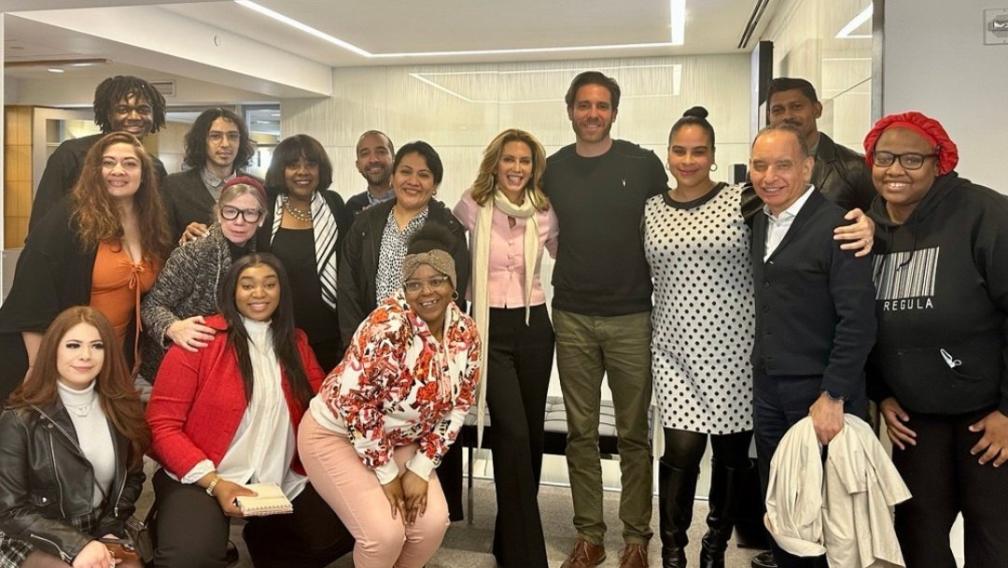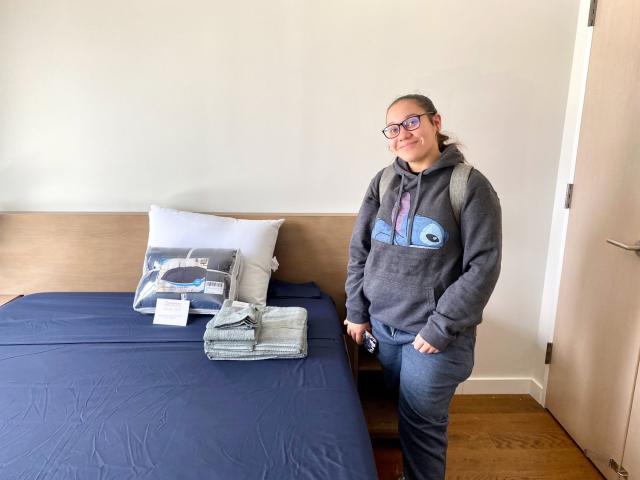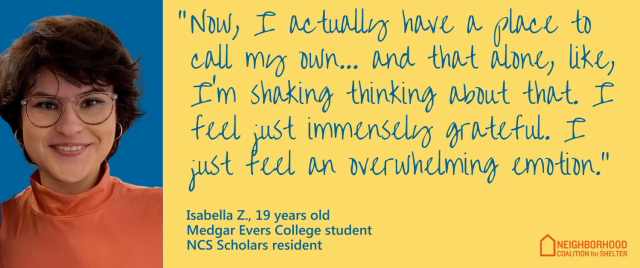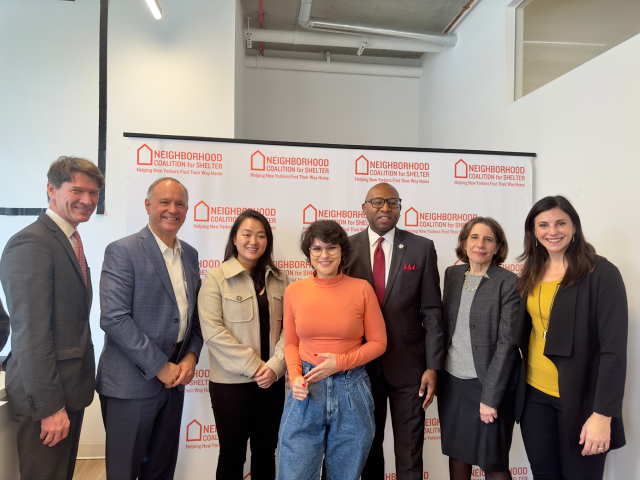Educational experiences beyond high school help students increase their future earning potential and economic mobility, hone and develop their skill sets, expand their worldview, and explore new interests, opportunities, and networks. But for housing-insecure college students who have to balance their basic needs with their academic goals, these benefits are extremely difficult to access.
Historically, housing-insecure college students have been under-acknowledged and undersupported by their educational institutions and society at large. The challenges these students face are exacerbated in cities like New York due to the extremely expensive housing market. According to a 2019 report by the Hope Center for College, Community, and Justice, 55% of City University of New York (CUNY) students surveyed reported experiencing housing insecurity and 14% were homeless the previous year.
In response, Neighborhood Coalition for Shelter (NCS), a longtime leader in the New York housing solutions space, launched the NCS Scholars pilot program in October 2022 with the support of funding and expertise from Trinity Church Wall Street.
NCS Scholars is an innovative pilot program that provides year-round housing and supportive services for unhoused college students aged 18 and older. While still in the early stages, NCS hopes it can be replicated throughout the CUNY system and in other parts of the country.
NCS was established in 1982 by faith and community leaders on Manhattan’s Upper East Side who saw the need to address the crisis of mass homelessness. Over the last 40 years, NCS has evolved with the changing needs of the community. They were among the first organizations to offer supportive housing, young adult housing, and harm-reduction substance-use treatment. Now NCS is bringing its experience in pioneering these innovative solutions to support CUNY students who are experiencing homelessness or housing insecurity.
NCS Scholars functions as a student residence with co-living spaces, shared kitchens, and shared bathrooms. There are also on-site services to help residents navigate obstacles that can derail progress toward a degree or credential. The residence is staffed 24 hours a day and includes an on-site social worker who connects residents with social services, mental and physical health resources, academic and employment support, and financial assistance.
NCS Scholars’ first cohort included 13 students attending Medgar Evers College (MEC) in Crown Heights, Brooklyn, and three students who were referred to the program through NYC’s Department of Youth and Community Development (DYCD) shelters. With the capacity to support up to 36 students, NCS is in the process of forming a partnership with LaGuardia Community College in Long Island City, Queens.
Over the last two years, Trinity Church Wall Street provided two planning grants totaling $250,000 as well as extensive expertise that supported the development and launch of the NCS Scholars program. Trinity’s support allowed NCS to lay essential groundwork for the program by conducting a needs assessment, building key partnerships, developing the program model, and conducting real estate searches.
Prior to the launch of this program, there were few, if any, housing options that provided the interconnected and necessary support for housing-insecure college students in New York City. This is a powerful model that can be scaled across New York City and the country and will put more students on a path to successfully achieving their goals and greater financial resilience.



